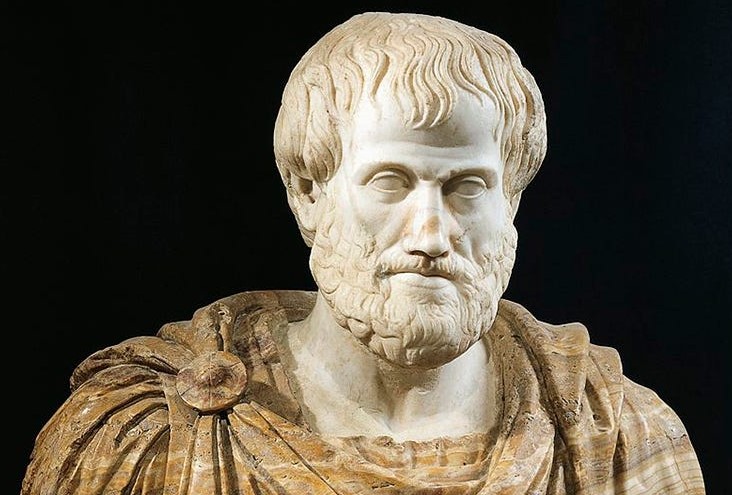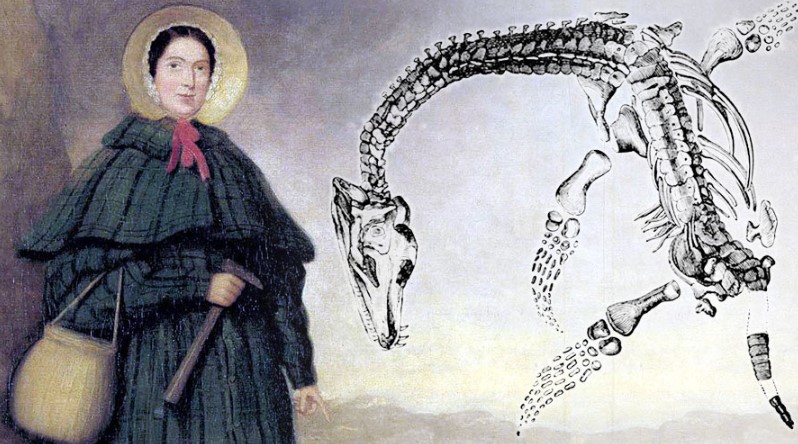
Aristotle
Introduction to Aristotle
Who Was Aristotle?
Aristotle, the towering figure of ancient Greek philosophy, was born in 384 BCE in Stagira, a small town in northern Greece. He was a student of Plato and the teacher of Alexander the Great. Aristotle’s contributions spanned various fields including metaphysics, logic, ethics, politics, biology, and aesthetics. His work laid the foundation for much of Western philosophy and science, making him one of the most influential philosophers of all time.
Importance of Aristotle in Philosophy
Aristotle’s importance in philosophy cannot be overstated. He was a prolific writer and a keen observer of the natural world. His systematic approach to studying different subjects and his method of empirical investigation were revolutionary. Aristotle’s philosophy centered around the idea that knowledge comes from experience and that we can understand the world through observation and reasoning. This empirical approach was a significant shift from his teacher Plato’s theory of ideal forms and has deeply influenced scientific methods used today.
Early Life and Education
Birth and Family Background
Aristotle was born to Nicomachus, a court physician to the Macedonian king Amyntas II. This early connection to the Macedonian court would later play a crucial role in his life. His family background provided him with the opportunity to receive a high-quality education, which was rare for his time.
Aristotle’s Education and Mentors
At the age of seventeen, Aristotle moved to Athens to join Plato’s Academy, one of the most prestigious learning institutions of the time. Under Plato’s guidance, Aristotle studied for twenty years, absorbing the vast knowledge and philosophical methods of his mentor. Plato’s influence on Aristotle was profound, although Aristotle would eventually develop his own distinct philosophical ideas.
Aristotle’s Time at Plato’s Academy
Influence of Plato on Aristotle
Plato’s Academy was a place where Aristotle honed his skills in philosophy. He deeply respected Plato but also critically examined his ideas. Plato’s theory of forms, which posits that non-material abstract forms (or ideas) represent the most accurate reality, was particularly influential to Aristotle’s early thinking.
Divergences from Platonic Thought
Despite the influence, Aristotle diverged significantly from Plato’s teachings. Aristotle rejected the notion of the existence of abstract forms independent of their physical instances. Instead, he proposed that forms exist within things and that we can only understand them through their manifestations in the real world. This marked a significant departure from Platonic idealism and laid the groundwork for Aristotle’s empirical approach.
Aristotle’s Travels and Work
Time in Asia Minor and Lesbos
After Plato’s death, Aristotle left Athens and spent time in Asia Minor and the island of Lesbos. During this period, he conducted extensive research in biology and the natural sciences. His observations and classifications of plants and animals were groundbreaking and contributed significantly to the field of biology.
Court of King Philip II of Macedon
In 343 BCE, Aristotle was invited by King Philip II of Macedon to tutor his son, Alexander the Great. This period was crucial for Aristotle as it connected him to the political and intellectual elites of the time. His teachings significantly influenced Alexander, who would go on to conquer much of the known world, spreading Greek culture and knowledge.
Founding the Lyceum
Establishment of the Lyceum
Upon his return to Athens in 335 BCE, Aristotle founded his own school, the Lyceum. The Lyceum became a prominent center of learning and research. Unlike Plato’s Academy, the Lyceum was more empirically oriented, emphasizing the collection and analysis of data from the natural world.
Teaching Methods and Curriculum
Aristotle’s teaching methods were innovative. He walked while teaching, leading to his followers being called Peripatetics, derived from the Greek word “peripatetikos,” meaning “walking about.” The curriculum at the Lyceum was diverse, covering subjects such as logic, metaphysics, ethics, politics, and natural sciences. This broad approach reflected Aristotle’s belief in the interconnectedness of knowledge.
Aristotle’s Writings and Contributions
Categories of Aristotle’s Works
Aristotle’s writings can be categorized into three main groups: theoretical, practical, and productive. Theoretical works include his treatises on metaphysics and natural sciences. Practical works focus on ethics and politics, while productive works address the arts and rhetoric.
Major Treatises and Their Impact
Some of Aristotle’s most significant works include “Metaphysics,” “Nicomachean Ethics,” “Politics,” “Physics,” and “Poetics.” Each of these treatises has had a lasting impact on various fields. “Metaphysics” explores the nature of reality and existence. “Nicomachean Ethics” delves into the nature of human happiness and virtue. “Politics” examines the organization of human societies. “Physics” lays the groundwork for natural sciences, and “Poetics” analyzes literary forms, particularly tragedy.
Philosophy and Metaphysics
Aristotle’s View on Being and Existence
In his metaphysical inquiries, Aristotle sought to understand the nature of being. He introduced the concept of “substance” as the underlying reality that supports all attributes and changes. According to Aristotle, everything in the natural world has a purpose (telos) and moves towards its own natural end.
Concept of the “Unmoved Mover”
One of Aristotle’s most profound contributions to metaphysics is the idea of the “Unmoved Mover.” This concept refers to the ultimate cause of all motion and change in the universe, which itself remains unmoved. The “Unmoved Mover” is pure actuality and is often interpreted as Aristotle’s notion of God.
Logic and the Organon
Aristotle’s Contributions to Logic
Aristotle is often called the father of logic. He developed the first formal system of logic, known as syllogistic logic, which involves deducing conclusions from premises. This system remained the standard until the development of modern symbolic logic.
Importance of the Organon
The “Organon” is a collection of Aristotle’s six works on logic. It includes “Categories,” “On Interpretation,” “Prior Analytics,” “Posterior Analytics,” “Topics,” and “On Sophistical Refutations.” These texts laid the foundation for the study of logic and influenced subsequent philosophical and scientific methods.
Ethics and Politics
Nicomachean Ethics
In “Nicomachean Ethics,” Aristotle explores the concept of eudaimonia, often translated as “happiness” or “flourishing.” He argues that eudaimonia is achieved through the cultivation of virtues, which are habits that enable individuals to live in accordance with reason. Virtue, according to Aristotle, lies in the “golden mean” between excess and deficiency.
Aristotle’s Views on Politics and the Polis
Aristotle’s “Politics” examines the nature of human communities and the best forms of government. He believed that humans are inherently political animals who find fulfillment within the polis (city-state). Aristotle classified different types of governments and analyzed their strengths.
Natural Sciences and Biology
Contributions to Biology
Aristotle’s contributions to biology were groundbreaking for his time. He categorized and studied animals extensively, laying the foundation for the biological sciences. His approach involved careful observation and classification, which marked a departure from earlier mythological and supernatural explanations.
Observations and Classifications
Aristotle’s biological studies were empirical in nature. He observed and categorized animals based on their characteristics and behaviors. His work “Historia Animalium” documented detailed observations of over 500 species, discussing their anatomy, reproduction, and habitats. Aristotle’s classification system, although rudimentary compared to modern taxonomy, was influential for centuries.
Rhetoric and Poetics
The Art of Persuasion
Aristotle’s “Rhetoric” explores the principles of persuasive communication. He identified three modes of persuasion: logos (logical appeal), pathos (emotional appeal), and ethos (ethical appeal). According to Aristotle, effective rhetoric requires understanding the audience, choosing appropriate language, and structuring arguments logically.
Aristotle’s Analysis of Tragedy
In “Poetics,” Aristotle analyzes Greek tragedy and defines its key elements. He argues that tragedy should evoke emotions of pity and fear (catharsis) in the audience. Aristotle discusses the structure of tragedy, including plot, character, thought, diction, melody, and spectacle, emphasizing the importance of unity and completeness.
Influence on Later Thought
Aristotle’s Impact on Medieval Scholars
During the Middle Ages, Aristotle’s works were translated into Arabic and Latin, profoundly influencing Islamic and Christian thinkers. Scholars like Avicenna and Thomas Aquinas integrated Aristotelian philosophy with religious doctrine, shaping medieval intellectual discourse.
Renaissance and Modern Philosophy
The Renaissance witnessed a revival of interest in Aristotle’s works, challenging medieval interpretations and contributing to the development of modern philosophy and science. His emphasis on empirical observation and systematic inquiry laid the groundwork for the scientific revolution of the 17th century.
Criticisms and Controversies
Criticisms of Aristotle’s Ideas
Despite his monumental contributions, Aristotle’s ideas have been subject to criticism. His teleological view of nature, which attributes purpose to all things, has been challenged by mechanistic and evolutionary theories. Additionally, his hierarchical views on slavery and the subordinate status of women reflect the social norms of his time and have been critiqued from a contemporary ethical perspective.
Aristotle’s Views on Women and Slavery
Aristotle’s views on women and slavery were influenced by the societal norms of ancient Greece. He believed that women were naturally inferior to men and advocated for their subordination within the household. Similarly, Aristotle justified slavery as a natural condition for certain individuals who were incapable of self-governance.
Legacy and Enduring Relevance
Aristotle’s Lasting Influence
Aristotle’s legacy endures through his systematic approach to knowledge, his contributions to logic and scientific inquiry, and his profound influence on Western philosophy, ethics, politics, and natural sciences. His ideas have shaped intellectual traditions for millennia and continue to provoke scholarly debate and exploration.
Relevance of Aristotle’s Ideas Today
Many of Aristotle’s ideas remain relevant in contemporary discourse. His ethical theories on virtue ethics continue to inform discussions on moral philosophy. His logical framework laid the groundwork for formal logic and scientific methodology. Moreover, his insights into politics and governance offer valuable perspectives on democracy and justice in modern societies.
Conclusion
Aristotle’s life and work encompassed a remarkable breadth of subjects, from metaphysics to biology, rhetoric to ethics. His empirical approach and systematic methods revolutionized Western thought, leaving an indelible mark on philosophy and science. Aristotle’s enduring legacy continues to inspire and challenge scholars and thinkers worldwide.
FAQs
- What Was Aristotle’s Most Significant Contribution? Aristotle’s most significant contribution lies in his development of logic and systematic approach to scientific inquiry.
- How Did Aristotle Influence Modern Science? Aristotle’s empirical methods and classifications laid foundational principles for modern scientific inquiry.
- What Is the Difference Between Plato and Aristotle’s Philosophies? Plato emphasized ideal forms and the immaterial world, whereas Aristotle focused on empirical observation and the physical realm.
- Why Is Aristotle Considered the Father of Logic? Aristotle developed the first formal system of logic, known as syllogistic logic, which became foundational for subsequent philosophical and scientific reasoning.
-
What Are Aristotle’s Key Ethical Teachings? Aristotle’s ethics revolve around the cultivation of virtues to achieve eudaimonia (flourishing), emphasizing the importance of moderation and practical wisdom.


